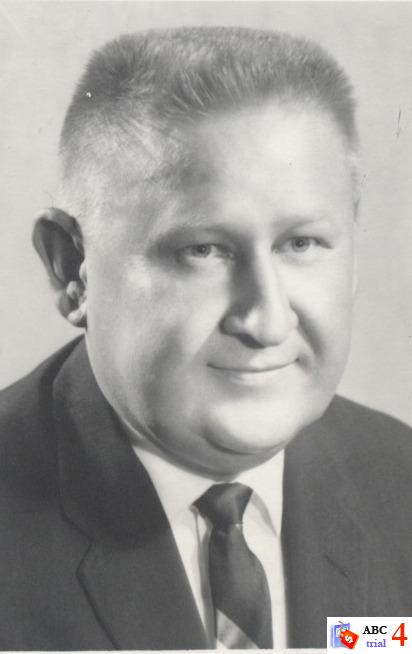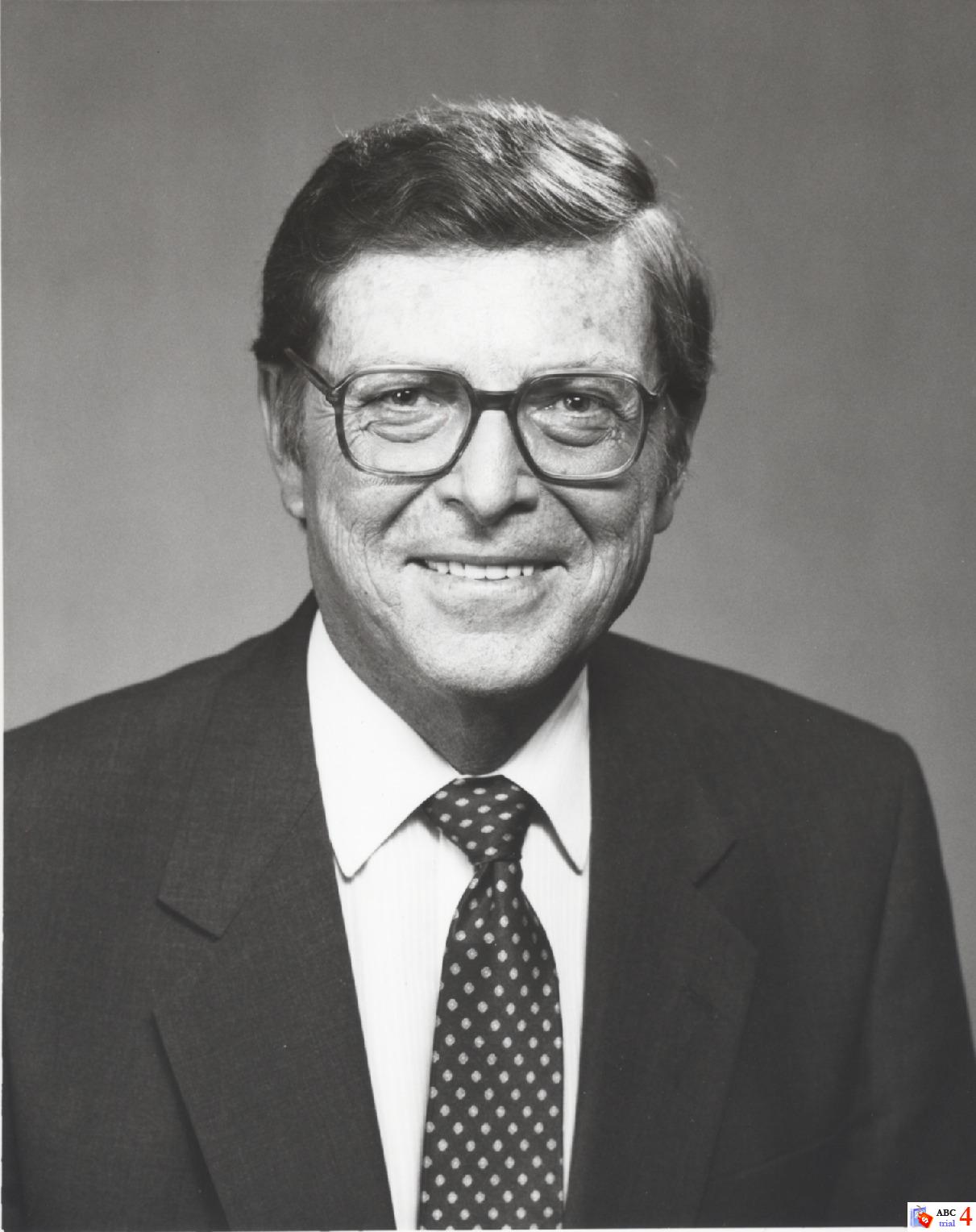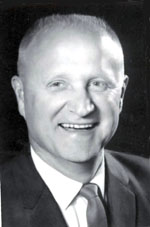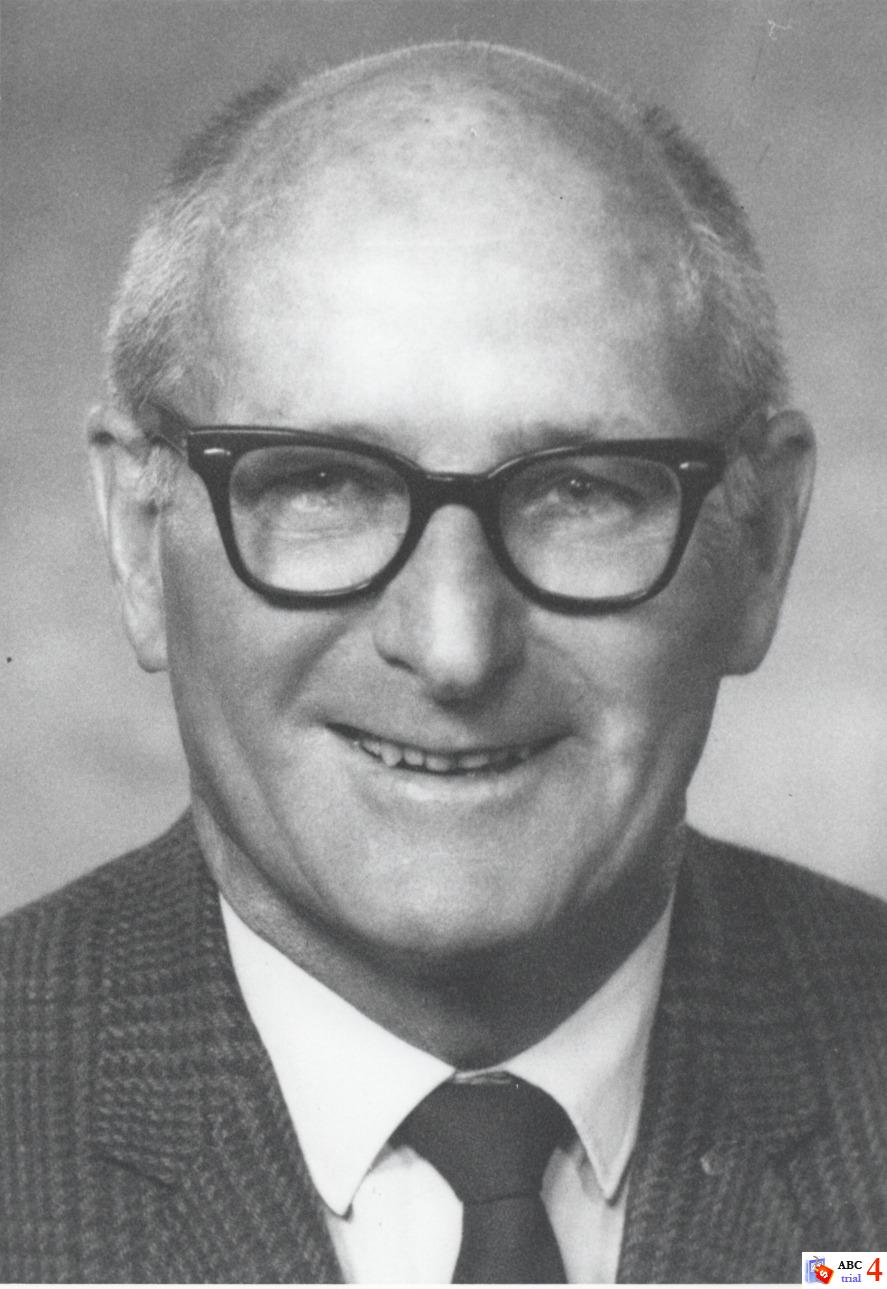- Bill Brannin
- Bill Brannin
As a competent athlete, imaginative coach, enthusiastic businessman and adroit promoter, Bill Brannin knew only success in many walks of life.
After a stellar prep career in four sports at Albuquerque High that included the title of welterweight boxing champion, Brannin earned a total of nine athletic letters at UNM in football, track and boxing. He played quarterback, halfback and punter for head coach Gwinn Henry, leading the 1934 Lobos to an 8-1 record and the Border Conference championship. In the ring, Brannin won 51 consecutive bouts, 27 by knockout. He graduated from UNM in 1936.
After serving the U.S. Air Force in World War II, Brannin coached high school football, golf, boxing and basketball in Charlotte, N.C., until 1951. He returned to Albuquerque where he made his mark in the community. Brannin was president of the Lobo Club (1987-88), UNM Lettermen’s Club, Young American Football League, Albuquerque Sports Hall of Fame and the UNM Alumni Association.
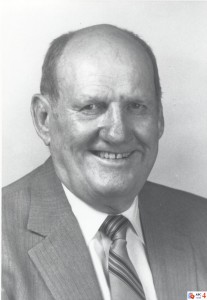
- L.F. “Tow” Diehm
- L.F. “Tow” Diehm
Tow Diehm did as much for Lobo athletics as anyone. He came to UNM in 1957 to serve as the school’s athletics trainer, a position he would hold for 31 years. It was during that time that Diehm treated and befriended thousands of student-athletes. In 1988, he was elevated to associate athletics director where he began lobbying efforts with the state legislature to help fund a desperately needed athletics training facility.
His endless to trips to Santa Fe resulted in the construction of the magnificent and appropriately-named L.F. “Tow” Diehm Athletics Facility, a three-story structure completed in 1995 nestled in the south end zone of University Stadium.
Diehm was also instrumental in prompting legislators to pass a tuition waiver bill for out-of-state student-athletes, which provides a huge savings to all of the state’s four-year institutions.
Although he officially semi-retired in 1992, Diehm continued to work the legislature on behalf of UNM until his death in 1998.

- Pete Domenici
- Pete Domenici
Pietro Vichi “Pete” Domenici served six terms as a United States Senator, from 1973 to 2009, the longest tenure in the state’s history. During Domenici’s tenure in the Senate, he played pivotal roles on critical national issues such as justice, natural gas policy, clean air legislation and development of alternative energy sources.
Born in Albuquerque in 1932 to Italian-American parents, Domenici grew up working in his father’s grocery business. He starred as a pitcher at St. Joseph’s College – the forerunner to the University of Albuquerque – where he fashioned a sterling 26-2 record. Domenici transferred to UNM where he posted a 14-3 record as a senior when he earned All-Skyline Conference honors. After earning a degree in education from UNM in 1954, Domenici pitched one season for the Albuquerque Dukes, the farm club for the Brooklyn Dodgers.
Domenici earned his law degree from the University of Denver in 1958, then returned to Albuquerque to enter private practice. His first political race was 1966 when he successfully ran for the Albuquerque City Commission. Six years later, Domenici became the first New Mexico Republican in 38 years elected to the U.S. Senate.

- Bob King
- Bob King
Known as the “Architect of Lobo Basketball,” Bob King came to the University of New Mexico prior to the 1962-63 academic. He compiled an overall mark of 175-89 at UNM, and never had a losing record in 10 seasons. Before King’s arrival, the Lobos had endured eight straight losing seasons.
King led UNM to a pair of Western Athletic Conference titles in 1964 and ‘68. The Lobos made three NIT appearances, including the finals in 1964, and the school’s first NCAA Tournament in 1968. King produced 10 all-WAC performers and two All-Americans in Mel Daniels and Ron Nelson.
Arguably, King’s biggest accomplishment was the building of University Arena, or The Pit, after UNM began winning under his auspices. Playing at 7,000-seat Johnson Gym when King arrived on campus, UNM’s attendance doubled in his first three years. The Pit opened on Dec. 1, 1966. Original seating capacity was 14,831, which made The Pit one of the largest collegiate arenas in the country at the time. The cost was an economical $1.4 million. In 1975, a mezzanine added 2,300 seats at a cost of $2.2 million. Reserved standing-room-only spots increased The Pit’s capacity to 18,018.
On October 2, 1992, University of New Mexico President Richard E. Peck announced that the court at University Arena would be named in honor of Bob King. The Bob King Court was dedicated at formal ceremonies on Dec. 1, 1992.

- Pete McDavid
- Pete McDavid
When one considers that Pete McDavid is credited with the establishment of UNM’s athletics facilities on South Campus, the founding of the Western Athletic Conference in 1962 and an originator of the New Mexico High School Coaches and Officials Association, it is little wonder that McDavid ranks among the finest athletics director in UNM history.
A 1937 UNM graduate who played halfback for head football coaches Gwinn Henry and Ted Shipkey, McDavid’s named is forever etched in the school record book after he galloped 97 yards with a fumble against Northern Arizona in 1936.
After a hugely successful prep coaching career in Santa Fe and Albuquerque, UNM President Tom Popejoy named McDavid as UNM’s director athletics in 1956, a position he held for 18 years.
McDavid hired some of the most successful head coaches in UNM history: Marv Levy and Bill Weeks (football), Bob King (basketball), Hugh Hackett (track and field), Rusty Mitchell (gymnastics) and George Brooks (skiing).

